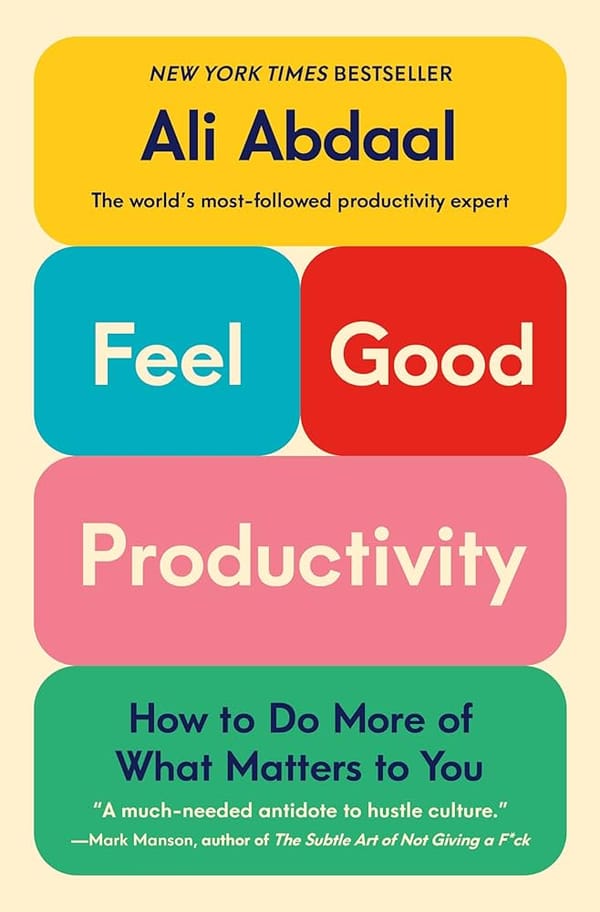Ali Abdaal is a Doctor, entrepreneur and YouTuber. On the launch of his course, he made £70,000 in a day. It's fair to say, he's great at all three.
The foundations of his success lie in his ridiculous productivity. The hours in his week seem to stretch twice as far as mine. That's why I'm applying those foundations into my life to see if they can improve my workflow, productivity and ultimately my success.
Through this process, I hope that you can learn from my mistakes and find principles to apply into your life.
Step 1: Tap the 3 Sources of Good Feelings (Medicine)
Fun, empowerment and connection are the three sources of good feelings that Ali encourages in Feel Good Productivity.
- Fun: If you can make the work feel fun, it'll be more intrinsically enjoyable for you, and you'll be a pleasure to be around for everybody around you.
- Empowerment: Ensure you have a sense of control through taking responsibility for all aspects of your life. Ensure an internal locus of control, over actions and results, but also your mindset.
- Connection: Surround yourself with positive, good people that support you and your ventures. People that understand and accept you will propel you to achieve more.
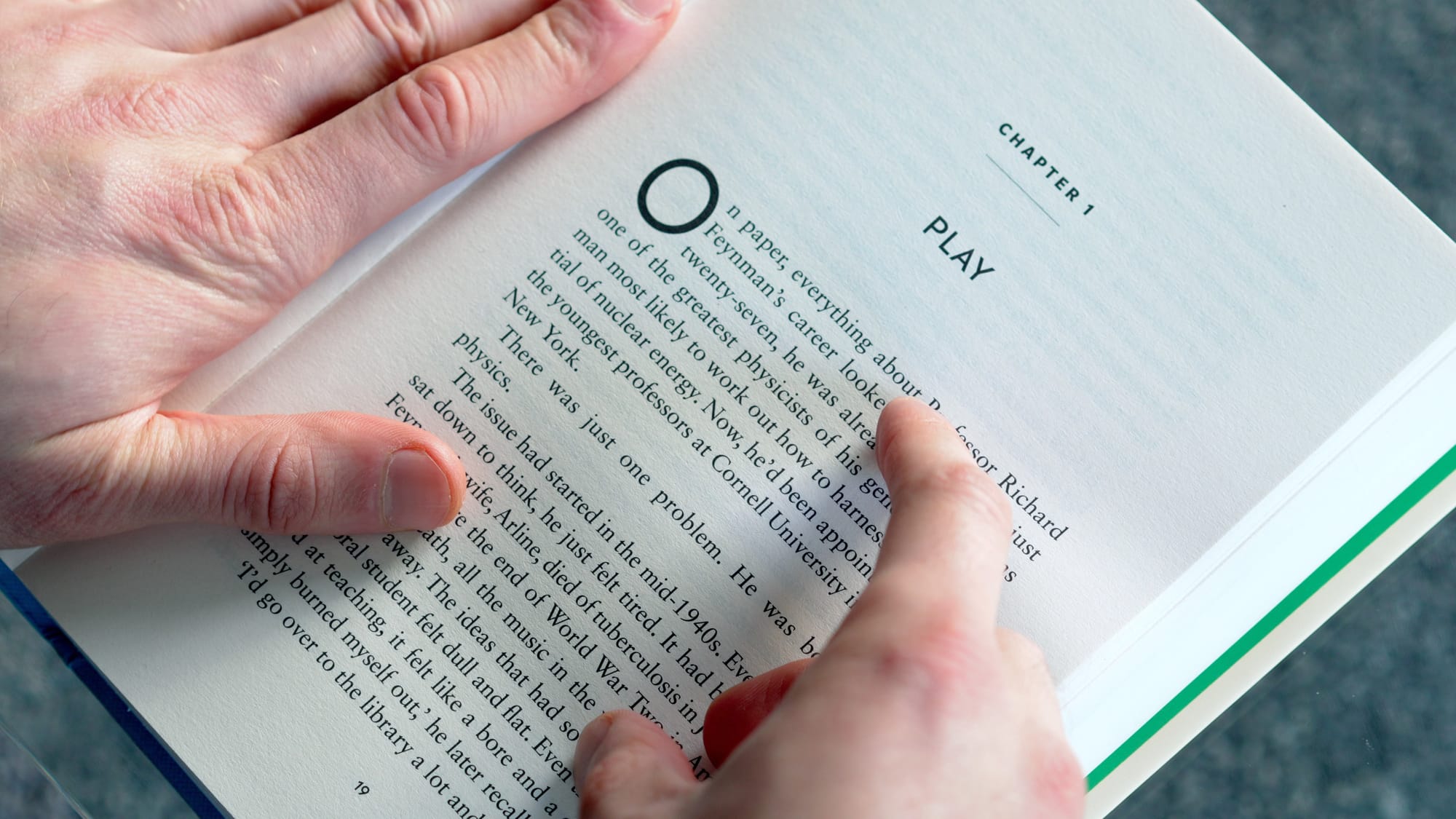
I struggle to 'make it fun' when I'm stressed in A&E. When you've got multiple sick patients and you're not quite sure how to investigate and manage them, it's difficult to smile, laugh and make it fun. Difficult, but not impossible.
As I become more familiar with the common presentations attending A&E, the stress reduces and I can start to see my fun side coming back out. As my confidence increases, I find my stress reducing and that opens the door to having fun at work—both with patients and colleagues. Over the last couple of weeks I've found my shifts a lot less draining by having fun with my colleagues and patients.
My goal is to make my patients smile. Hospital can be a terrifying place. A friendly face and a bad joke doesn't just make my shift more enjoyable, but may just make a terrifying experience 1% better for the patient too.
Step 2: Overcome the 3 Sources of Procrastination (Business)
Confusion, habit and anxiety are the three sources of procrastination. The three blockers of productivity.
- Confusion: You procrastinate when you don't know what to do. Understand the larger reason behind why you're doing this. Understanding your WHY can help to elicit HOW you're going to get there. Once you've established the WHY and HOW, the final step is outlining the WHEN.
- Habit: When you're in the habit of doing nothing, you'll stick to it. Build motivation-action loops instead. Motivation drives you to, then the action drives you to have more motivation. The cycle repeats. In this article, I explore the neuroscience behind this.
- Anxiety: People tend to put off doing things that they really want to do because they’re worried about the outcome. Answering the following questions can be powerful in addressing this: What specifically is going to happen? If that thing happens, how bad would it really be?
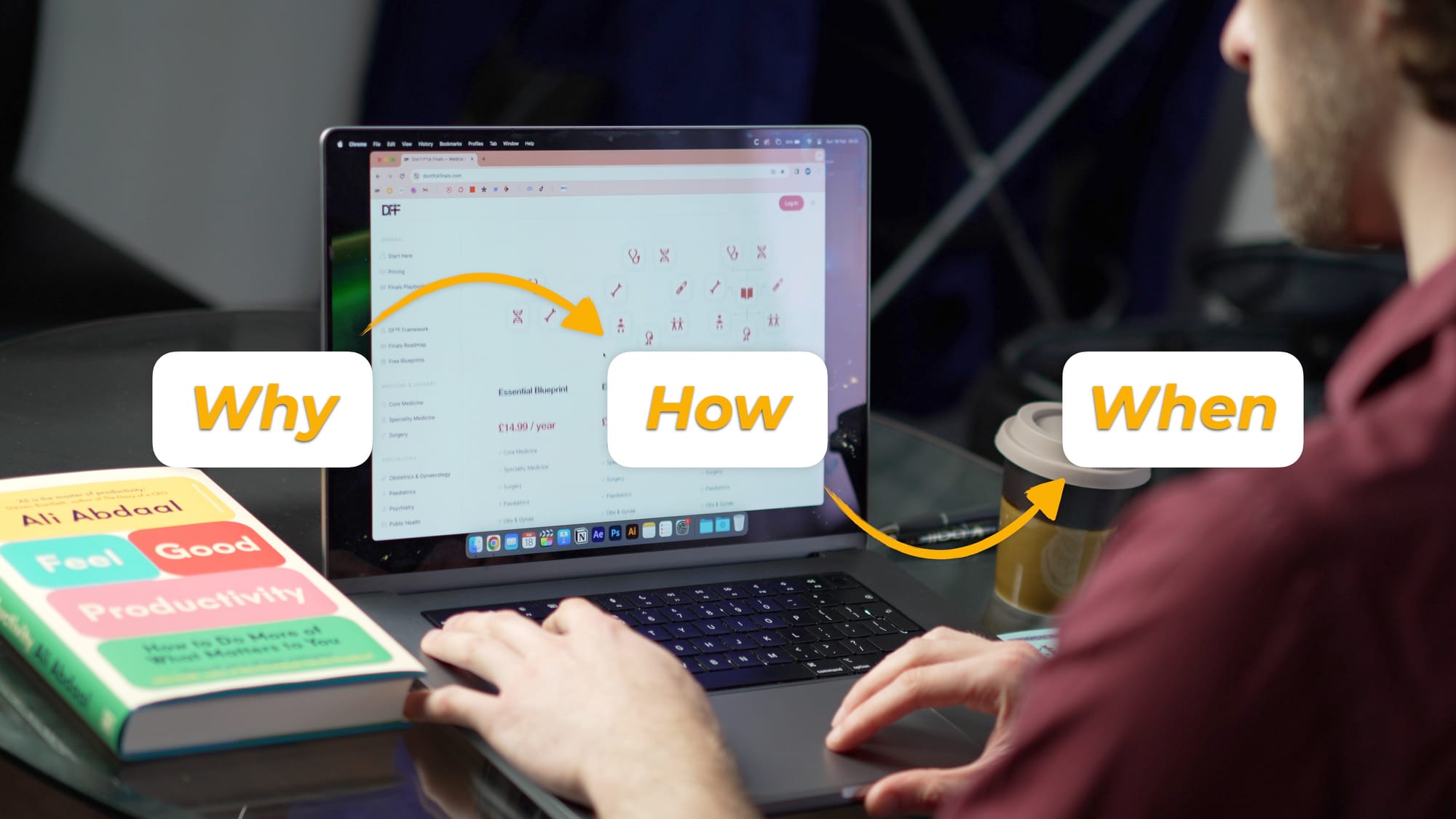
For me, outlining WHEN is a huge issue.
I run a business Don't F*ck Finals (DFF). We provide simple, structured medical school notes to help students pass their Medical School Finals. I'm content with my WHY: we help students to build their confidence. The HOW is clear, build the notes, improve the marketing materials, post consistently across social media to raise awareness.
My issue: WHEN. My priorities are Medicine and YouTube. I love working as a Doctor and making consistent educational YouTube videos. DFF is on the back-burner because their 'why' is much stronger than DFF.
Over the last couple of weeks, I've reminded myself of Parkinson's Law.
Work will expand to fill the time allotted for its completion.
Without setting a deadline for completion, my work will continue to expand. Those deadlines don't just apply to DFF, but also to YouTube. I have clear shifts for Medicine, so I need to schedule in YouTube shifts and DFF shifts.
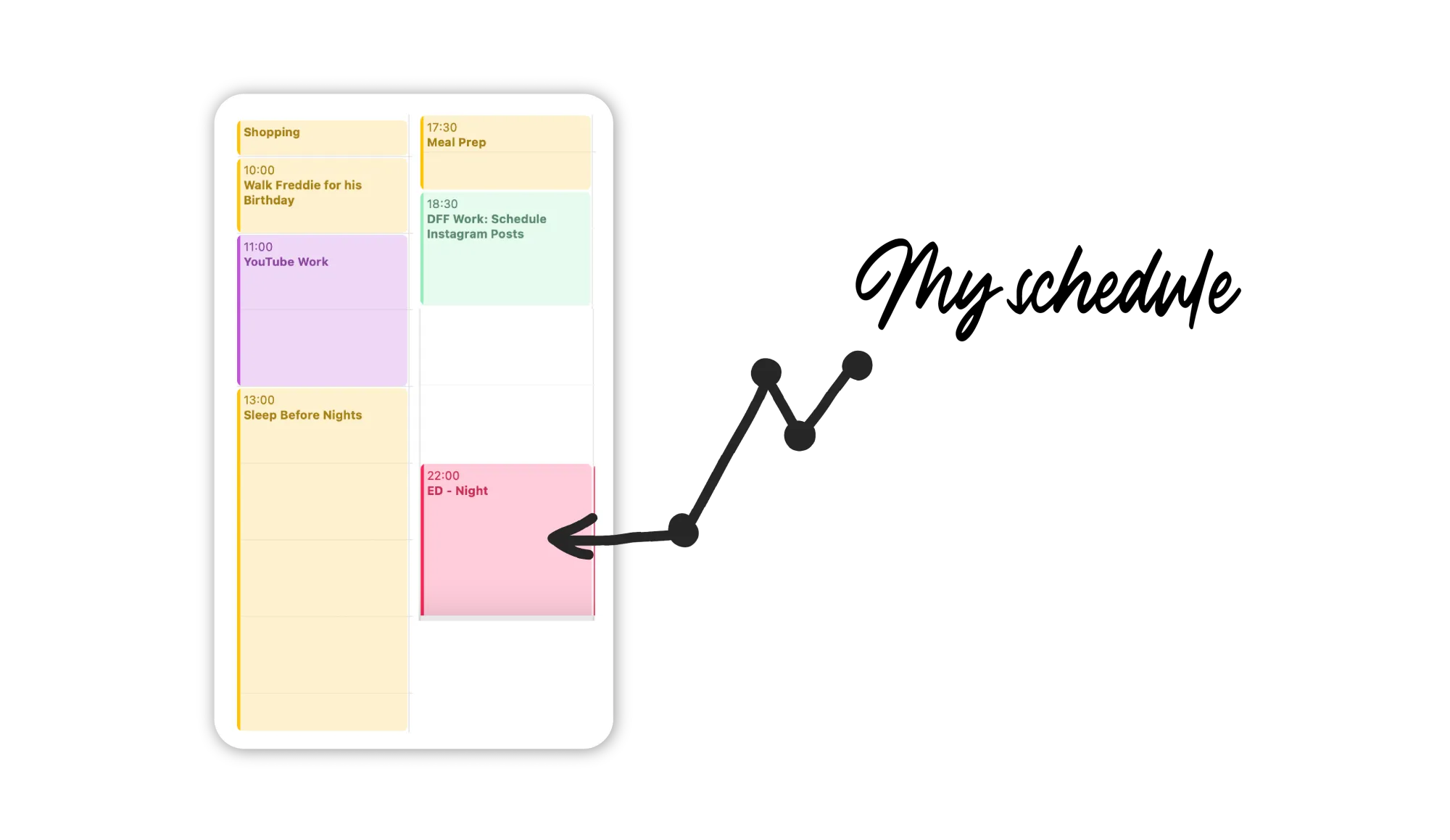
This is what my Type-A schedule looked like for Monday. Planning social activities, YouTube and DFF around my night shifts.
My work is usually dictated by my mood. If I'm enjoying something, I'll continue to do it. This allows me to delve deeper into the tasks that I enjoy most. It means I neglect others but get very good at the few that draw my attention.
I couldn't stick to this schedule because I ended up enjoying the walk so I extended it. As a consequence, I missed the YouTube work so substituted it in place of DFF work later. Type-A simply isn't me.
I struggle to balance spontaneity with planning but I find that prioritising the key tasks that I want to get done, without an allotted time seems to work better for me. This is a very personal process though so I'd implore you to trial different techniques to see which works best for you.
Step 3: Avoid the 3 Kinds of Burnout (YouTube)
Strain, drain and mismatch are the 3 kinds of burnout.
- Strain: Strain is the volume of work on your plate. How much work can you do sustainably? It’s difficult to assess what’s sustainable and what’s not. A great question for assessing that is: 'How often do you have to shift into the grind mindset to get stuff done?' If you're unsustainable, reduce the volume of work by prioritising what's the most important to you. Say no to everything else.
- Drain: Drain happens when you don't get enough rest after working. Restorative rest is an investment in the future. What restorative rest means for you may be completely different to me. Introverts are energised by being alone and extroverts are energised in company. Figure out what restores you and make sure it becomes a priority.
- Mismatch: Does your work feel meaningful? Burnout creeps up when there's a mismatch between work that's aligned with your goals and the work that you're doing. An easy litmus test for this is: 'Would you do this without extrinsic reward?'
I've burned out in the past. Not a cataclysmic burnout that incapacitated me, but burnout that stopped me from doing the work I found meaningful.
The sacrifice of my burnout was my YouTube videos. Balancing them alongside University and working as a Doctor has been difficult. I'm not mismatched in this pursuit, but strain and drain definitely took their toll.
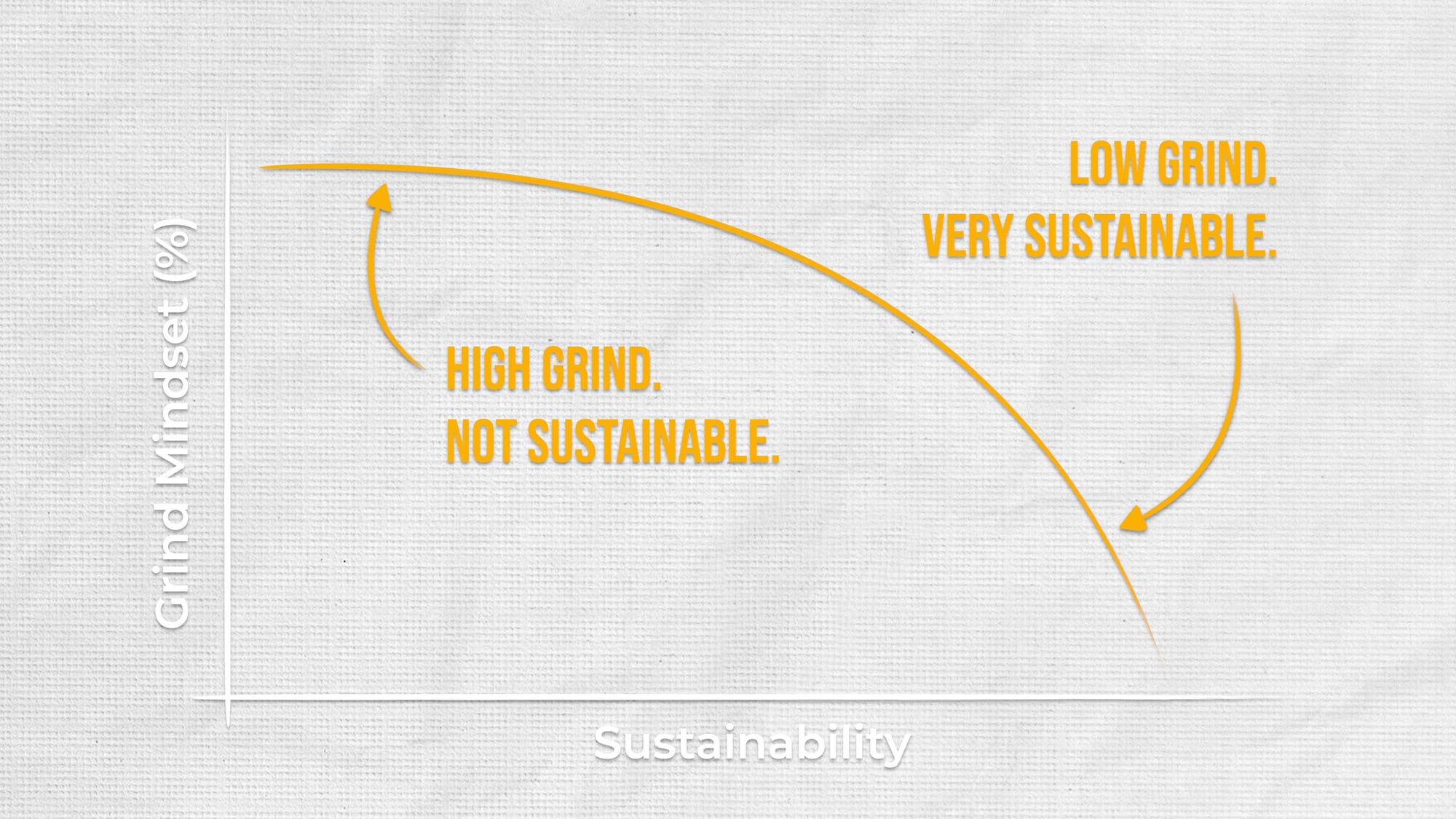
Fun Mode vs Grind Mode
How often do I have to shift into the grind mindset to get stuff done? Currently: a little. In the past: a lot.
'Fun mode' and 'grind mode' are at odds with each other. By switching from grind to fun, it increases my ability to do work without it feeling straining. By switching from 'I have to do this' to 'I get to do this' helps me to switch from grind to fun.
With less strain, I've increased the sustainability of my pursuits and I've now uploaded YouTube videos for 9 weeks in a row, the most consistent I've ever been.
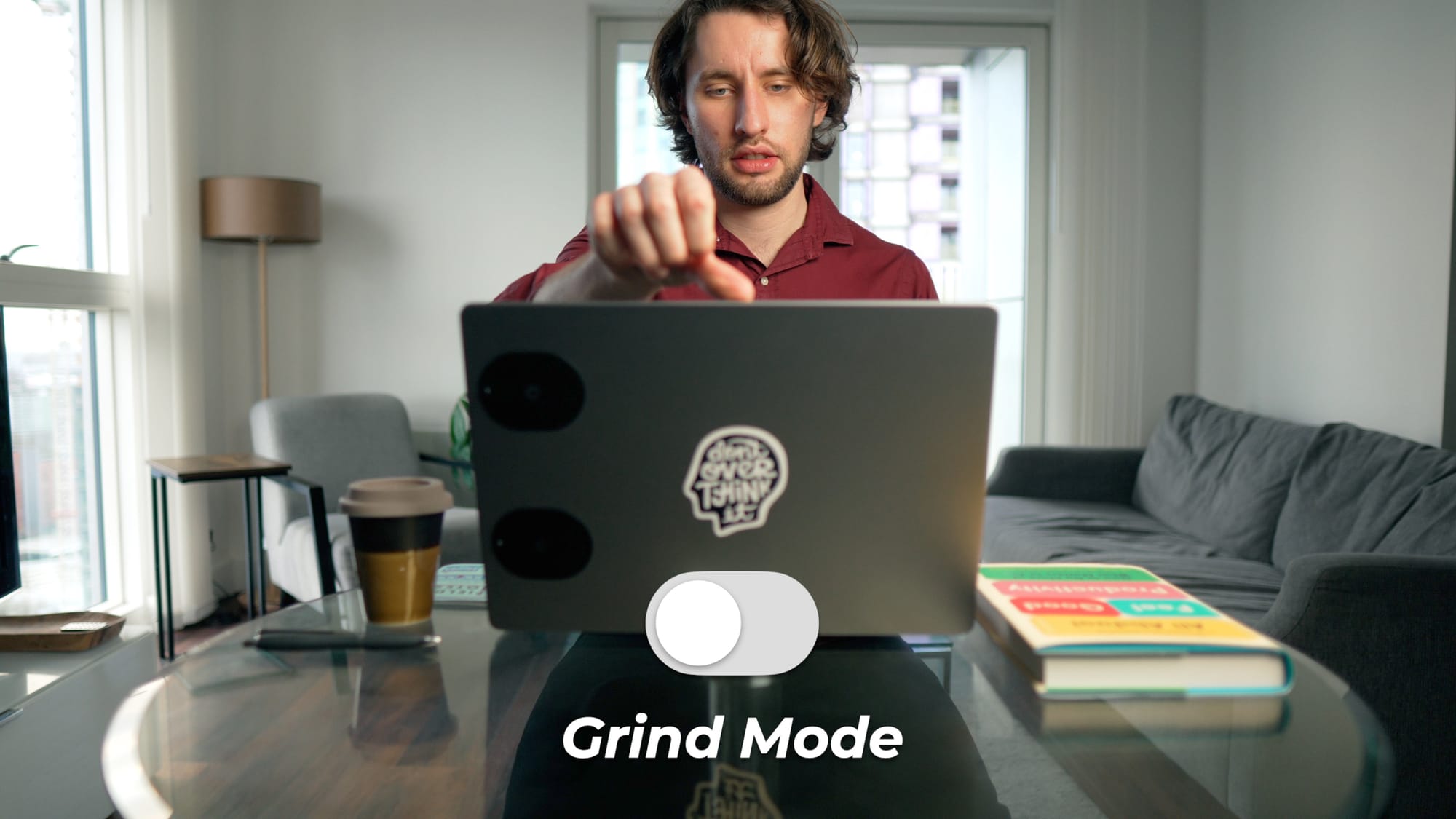
Restorative Rest vs Reluctant Rest
I've found that all rest isn't restorative. While I try to prevent drain through restorative rest, reluctant rest creates a barrier.
I found myself in reluctant rest following a week of difficult A&E shifts. I hit my day off feeling tired but knowing I needed to work on YouTube. I tried to work on YouTube but couldn't, then I tried to rest, but couldn't. My subconscious was guilt tripping me out of resting.
I haven't found the answer on how to switch from reluctant to restorative rest, but if you have any ideas, please let me know.
